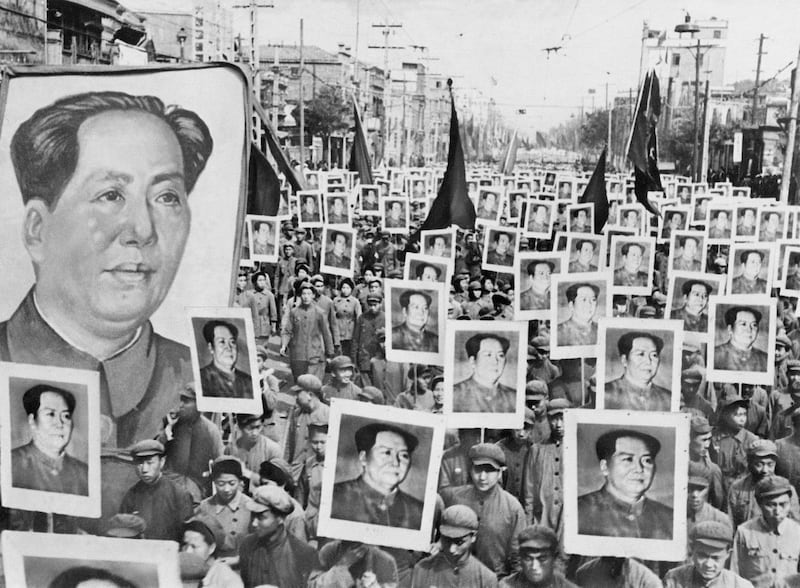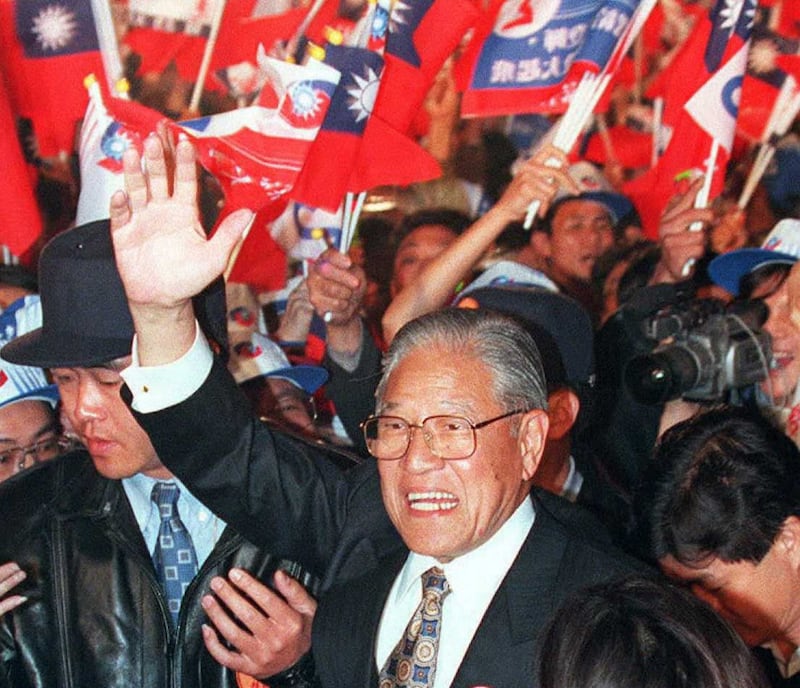A dissident writer from the southwestern Chinese megacity of Chongqing, who pledged allegiance to the 1911 Republic of China government in Taiwan in protest at local police, was recently detained for 15 days in a local detention center, Radio Free Asia has learned.
Liu Ermu, who has been a long-time critic of the ruling Chinese Communist Party, vowed last August to switch allegiance to the government of democratic Taiwan if a court didn't decide in his favor in an administrative lawsuit he filed against police.
Taiwan, which recently saw a Democratic Progressive Party president elected for an unprecedented third consecutive term, has never been ruled by the Chinese Communist Party, nor formed part of the People's Republic of China, although Beijing claims the island as its own.
It has been governed as a sovereign state called the Republic of China since the Kuomintang government fled to the island after losing a civil war to Mao Zedong's communists on the mainland in 1949.
Liu made the pledge after the Xiushan County People's Court rejected his complaint about the police handling of a workplace dispute, which they characterized as a "fight," while Liu insisted he was acting in self-defense.
"I felt I was being persecuted in China," he said. "It felt as if the law was unable to protect me under this government, so I openly pledged my allegiance to the Republic of China government."
"The territory [claimed by] the Republic of China includes mainland China," Liu said.
Liu was placed under administrative detention on Dec. 30, ahead of the Jan. 13 presidential and legislative elections in Taiwan.
"Three policemen came and handed a summons directly to my wife, then activated a 15-day sentence suspended in 2021, and took me to the Youyang county police department," he told RFA following his release.
"My guess is that they mostly wanted a way to keep control of me before voting began in the Taiwan elections," he said.
‘Longing’ for democracy
Liu said he made the pledge to draw attention to Taiwan's democratic system.
Taiwan was ruled as a Japanese colony in the 50 years prior to the end of World War II, but was handed back to the 1911 Republic of China under the Kuomintang government as part of Tokyo's post-war reparation deal.

The island began a transition to democracy following the death of Chiang Kai-shek's son, President Chiang Ching-kuo, in January 1988, starting with direct elections to the legislature in the early 1990s and culminating in the first direct election of a president, Lee Teng-hui, in 1996.
"Based on my long-term observation of Taiwan, I have a longing for a political system like that in the Republic of China," Liu said. "One that's full of freedom, justice and the rule of law.”
"I said publicly on Douyin that if the appeal verdict was also unjust, I would choose to be loyal to the government of the Republic of China," he said. "The state security police contacted me many times to ask me not to do this."
But a person familiar with the case who asked to remain anonymous for fear of reprisals said Beijing would see such a pledge as subversive.
"Pledging allegiance to the Republic of China while living in the People's Republic of China isn't an option," the person said. "[An action like that] at the very worst could be regarded as subversion of state power, and at best as picking quarrels and stirring up trouble."
China Pan-Blue Alliance
The 1911 Republic of China officially lays claim to the whole of mainland China, the whole of the independent country of Mongolia, along with parts of Myanmar, India, Russia, Tajikistan and Afghanistan, although the current government is largely focused on holding onto the islands it does control – Taiwan, Penghu, Kinmen and Matsu – in the face of Beijing's territorial claims.
Support for Taiwan among Chinese dissidents isn't unheard of, however.

In 2006, state security police cracked down on a group of activists known as the China Pan-Blue Alliance, in a reference to the "blue camp" group of parties led by the Kuomintang in Taiwan, after they tried to field candidates in elections to district People's Congresses in a number of locations across the country.
Alliance members in the northern province of Hebei and in the eastern province of Jiangsu taken in for questioning by police, as well as the group's founder, Wuhan-based Sun Bu'er.
Police told them they were an "illegal organization," and “monkeys” that wouldn't be allowed to "create havoc in Heaven," a reference to the Monkey King Sun Wukong, a key figure in Chinese mythology.
Translated by Luisetta Mudie .
